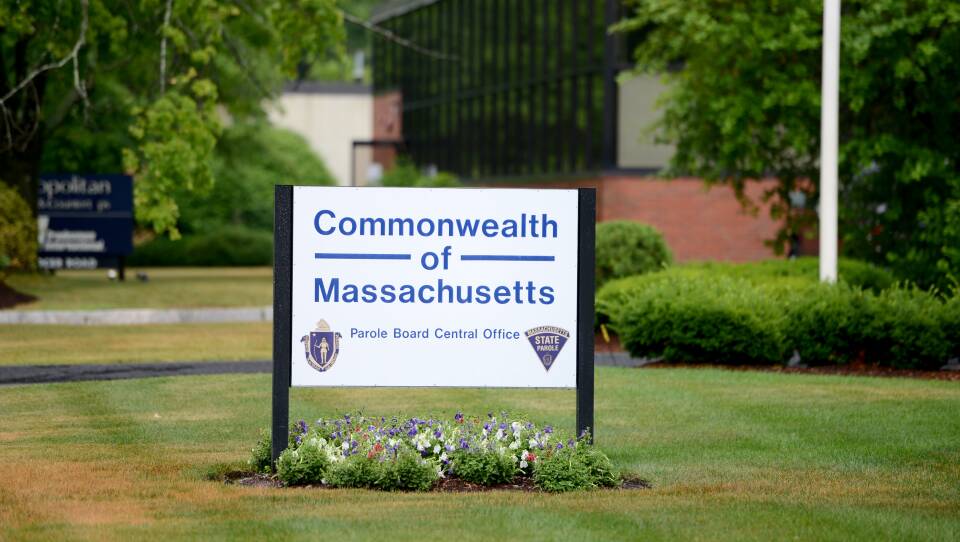Prison advocates, attorneys and state officials are gearing up to help the estimated 200 prisoners now eligible for parole since a landmark decision last week by the Massachusetts Supreme Judicial Court raised the minimum age to 21 before people could be sentenced to life without parole.
The Committee for Public Counsel Services, the state’s public defender agency, says it is working with the Parole Board to identify prisoners who are newly eligible to be considered for release as the agency prepares at least 40 attorneys to represent them.
Attorney Ruth Greenberg, who represented the defendant Sheldon Mattis in the first-in-the-nation case, says the decision provides solace to prisoners who committed crimes between the age of 18 and 20 who were anticipating spending their entire lives behind bars.
“People who were entirely without hope, who have reformed themselves, now have an opportunity to return to the world to show the Parole Board what they've done and who they really are, and that they are better than they were on their worst day,” Greenberg told GBH News.

Mattis was convicted of murder in 2013 and sentenced to life without parole for his part in the shooting death of Jaivon Blake. He was 18 years old at the time of the shooting.
The Thursday ruling extends a finding from a 2013 court decision that found defendants under 18 couldn’t be sentenced to life without parole, determining that any such sentence is “cruel or unusual as imposed on a juvenile in any circumstance.” The high court’s decision sends Mattis’ case back to a lower court for resentencing. It also creates precedent for others in Massachusetts prisons to be resentenced or go before the state’s Parole Board.
Ryan Schiff, an attorney who argued for Mattis in front of the state’s top court, said he has at least six clients who are just learning they are eligible for parole once not allowed to them.
“It's a feeling of relief,’’ he said. “They're finally going to have a chance to show that they've changed and that they deserve something other than dying in prison.”
“They're finally going to have a chance to show that they've changed and that they deserve something other than dying in prison.”Attorney Ryan Schiff
Officials from the Committee for Public Counsel Services say prisoners impacted by the decision fall into two categories: people who are immediately eligible for parole, because they’ve already served enough time; and those who now can hope for the possibility of release sometime in the future.
If the person's offense occurred before July 25, 2014, their sentence will now be life with the possibility of parole after 15 years. If their offense occurred on or after that date, their sentence will be life with the possibility of parole after between 20 and 30 years. The decision requires Superior Court judges to resentence each prisoner.
Mara Voukydis, director of the Parole Advocacy Unit at CPCS, said the agency’s role is to make sure that the people impacted by the decision have a trained attorney to represent them.
Voukydis says she’s been in touch with the Department of Correction and the Parole Board for months in anticipation of the decision. The Parole Board is tasked with calculating people’s parole eligibility dates. Voukydis says this is “complicated work,” because some people have consecutive sentences.
At that point, the public defender agency will assign attorneys based on people’s parole eligibility dates. Lisa Newman-Polk, an attorney who expects to represent some of these new clients, says older prisoners will likely get priority.
“They [CPCS] want to get the oldest and longest-serving prisoners assigned counsel first and then kind of work downwards towards the youngest people,” she said.
Prison advocates are hopeful the Parole Board will move quickly, but they acknowledge the challenges. The board, currently made up of six members, typically has hearings planned months in advance. There's currently one vacancy on the board.
Voukydis hopes board members will consider adding another parole hearing day or afternoon to hear cases. Advocates say the Parole Board has experience in gearing up, following the 2013 decision that first prohibited life without parole to juvenile defenders.
“I do think that anyone that wants a hearing will have a hearing as promptly as possible,” she said. "I'm just not clear what that actually means.”
Attorney Greenberg says Gov. Maura Healey could call up retired judges and former Parole Board members to help with the caseload. She said board members take their work seriously; it’s challenging to decide whether or not a person is ready to be released back to society.
The number of Parole Board members is determined by Massachusetts General Law.
“We could use a second or third Parole Board. The Legislature could authorize it, pass a bill,” she said. “When you have right to parole, it should be right to parole, timely. Not 'We’re going to hear one case a year for 200 years.'”
Tim McGuirk, spokesperson for the Parole Board, said board members are focused on public safety. “The Massachusetts Parole Board is currently reviewing the decision and is committed to fulfilling its responsibilities under the law,” he said. “Parole is granted when the Board determines that an individual can serve the remainder of their sentence in the community without violating the law, and that their release is not incompatible with the welfare of society.”








